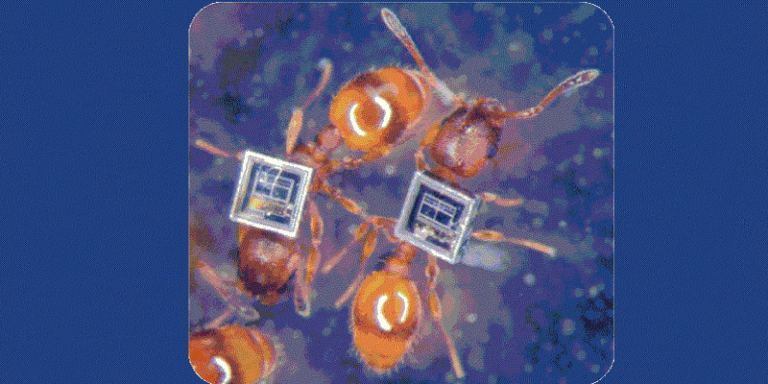Self-regulation in ant colonies and the role of space
22 February 2017, 5:00 pm–6:30 pm

Event Information
Open to
- All
Availability
- Yes
Organiser
-
Stephen Marshall
Location
-
Peter Hall Room G01 Central House
Nature-inspired Urbanism seminar series:Elsa Arcaute
‘Self-regulation in ant colonies and the role of space’
In eusocial organisms division of labour occurs in a self-regulatory way. Individuals are not genetically determined to undertake one task or another, and there is no single individual that plays the role of a manager and tells the rest what they need to do. And although such a high level of self-organisation is ubiquitous, its fundamental mechanism is unknown. In ant colonies, it has been observed that the tasks that individuals perform have a relationship with their spatial location. We use this information to propose a simple model that can lead to similar patterns to those found in division of labour in ant colonies. In a more elaborated form, models using the same principle serve to describe human mobility in urban systems; although we need to consider that more complex interactions and externalities intervene in the distribution of functionalities in cities. We argue that understanding these ubiquitous mechanisms in “simpler” systems, can give us powerful insights to plan for more resilient cities.
Elsa Arcaute is a Lecturer in Spatial Modelling and Complexity at the Centre for Advanced Spatial Analysis (CASA) at University College London. She is a physicist with a masters and a PhD in Theoretical Physics from the University of Cambridge. After her PhD she moved to the field of Complexity Sciences and joined the Complexity and Networks group at Imperial College London. There she developed models on self-regulation for social systems, extracting fundamental behaviours from experiments on ant colonies to test on robots, and to implement for an intervention in an Irish eco-village. In 2011, Elsa moved to UCL to join Prof Michael Batty at CASA, and since then she has been working on applying complexity sciences to urban systems. Her main branches being: urban scaling laws, hierarchies and morphology in urban systems, defining city boundaries, and the analysis of urban processes using percolation theory and networks. Together with RAs and PhD students, she is currently looking at developing performance indicators of cities, and measures of inequality applying multifractal methodologies.
Image: Ants with electronic tags that record their entrance or exit to the nest (Ana Sendova-Franks
 Close
Close

